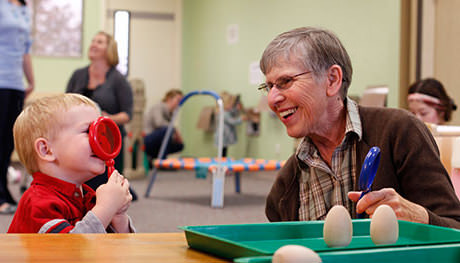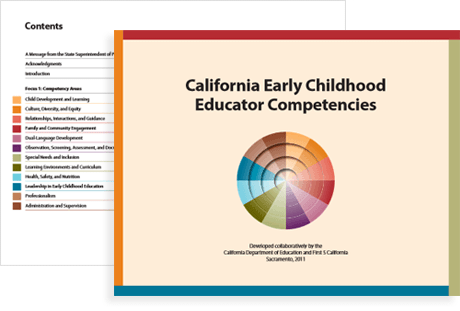Children see the world quite differently than we do. The world is new to them. They are experiencing so many "firsts" and trying to make sense of them. When we seek out their points of view, we gain valuable insights into their thinking, their questions, their fears, and the things that tickle their fancy and delight them. Take time to listen and watch closely. Let their perspectives inform everything you do in your day-to-day practice.


When you watch children closely you can often see them translating what they've seen and are understanding about leadership. For instance, a child might pretend to lead a circle time by saying,
"Okay, everybody, sit crisscross-applesauce. I'm the boss here."
Take some time to observe or investigate how children understand the idea of leadership. Offer them a group of animal or people props and ask them to move them around so we can see who is the leader of the group. Notice whether they associate the idea of leader with size or tone of voice. Probe with some gentle questions of curiosity such as:
Remember, this is an activity of investigation or research, not a time to teach or preach to the children. If you hear some thinking among the children that you would like to "correct" or change, first explore where their thinking might have come from. Then consider some things you could change in your leadership roles or organizational culture to gradually provoke a change in their understandings about leadership.
Use this template to record your observations, thoughts, and feelings. Download the Template
Deepen your understanding of the Competency Context: Supporting early learning and development in the Relationships, Interaction and Guidance Competency of the CA ECE Competencies. Scroll to page 120. Although this section is in another competency, it applies to the topics and activities discussed in the Key.
Can you find other places in this competency area that address your interests and needs?

Enjoy this video about the amazing brain called "Brain Hero", from the Center on the Developing Child at Harvard University.